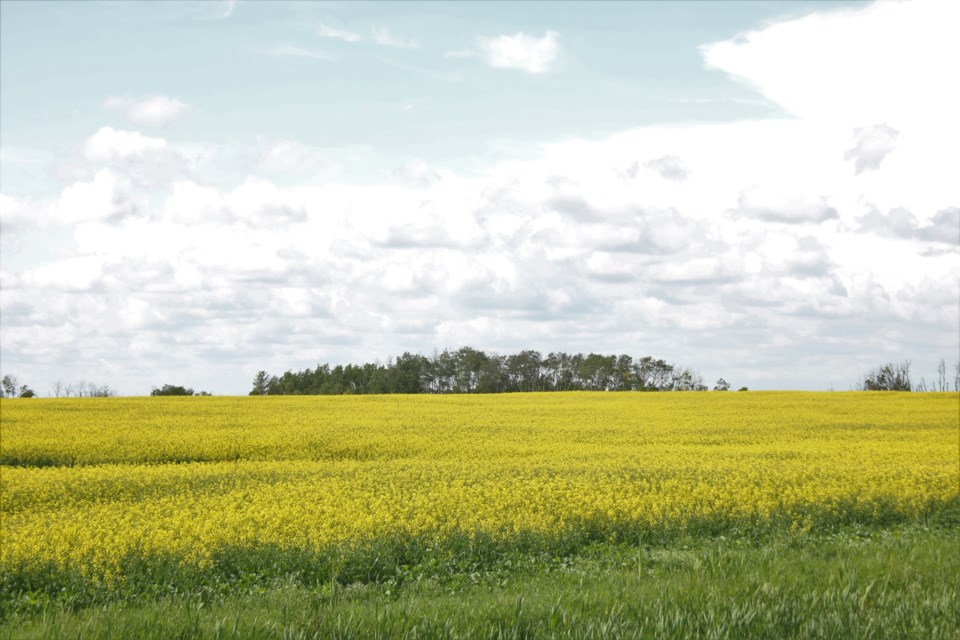There are plenty of uncontrollable factors those in the Ag industry must deal with every year, from weather to unpredictable market trends. This year brought more than anybody could have expected with the COVID-19 pandemic hitting Canada in March.
APAS VP Ian Boxall says the pandemic’s impact on the Saskatchewan Ag industry was yet another roadblock in a year full of them.
“I think 2020 has had lots of challenges for the Ag industry,” said Boxall. “I think as we start every year—let’s go back to January 2020—we saw some market disruption early on in the new year with some trade issues that Canada was having. We also saw some transportation issues, like we always see in the winter in this country.
“As things progressed into the spring and COVID came in, I think there was quite a bit of uncertainty on the onset of COVID around access to inputs to get the crop in the ground. As it warmed up and farmers got out into the field, I think many had a very tough start to the year this year.
“There was a lot of crop left out after the wet fall of 2019 so it was pretty tough to start in the spring—with that crop being left out there, there was also a lot of money left out in the fields still. I think we saw some producers have some cashflow issues because of that.
“When you have all that money tied up and sitting out in the field and you haven’t been able to harvest it, that leads to producers in the province having some cashflow issues—which is expected when you have that much crop left out. I think the growing season went very well, people got the crop in and there were some dry areas, but I think most of the province ended up with some pretty average crop.”
Although grain producers didn’t go unscathed, Boxall thinks the effect COVID-19 has had on the livestock sector has been major and will likely have a lasting impact as Canada comes through the pandemic.
“It definitely had a huge impact on the livestock sector,” he said. “We saw huge issues within the supply chain for livestock with slaughtering plants and processing plants for beef and pigs. They were really hit hard with COVID, it didn’t so much hit the grain side, but I know the livestock sector was really hurt here.
“They were hit really hard and I think they still might be feeling some of that, even now. It has affected their bottom line, that’s for sure. I think probably horticulture and livestock are the two sectors probably hit hardest in Saskatchewan and Canada because of COVID.”
Something Boxall is hopeful for as 2021 is set to begin is increased help for the Ag industry through more flexible support programs. With the impact COVID-19 has had on the sector and agriculture being the backbone of Canada, he thinks both the provincial and federal government need to make aiding producers a priority.
“I think the grain sector had a pretty good year,” he said. “We didn’t see huge yields, but I think we saw some pretty average yields across the province. Let’s hope that this vaccine gets rolled out and we don’t have any supply chain issues in the livestock sector in 2021.
“As a producer and someone involved in Ag policy, I’m curious to see what the province is going to say on the whole BRM and AgriStability shortly, I thought it would announced by now, but maybe it won’t be until the New Year.
“I’m interested to see what happens with that and what the federal government has proposed with it being retroactive to 2020, I hope there’s some support there for the livestock producers that have been hit so hard.”
As the COVID-19 vaccine begins to be accessible to the general public, Boxall sees agriculture as the key sector that will help get Canada back on track after the pandemic.
“The federal government has put some new money on the table in AgriStability,” he said. “We’re waiting to see if the provinces will sign on to that, that will help some producers. Is AgriStability the appropriate BRM program? I think lots of people would argue not.
“I think it could be rejigged for the 2023 framework, that would be a more implementable and adaptable program. It would adapt a little more to some of the circumstances we’ve seen over the last framework. We saw some major trade issues and some erosion in some markets where it’s still been trigger payments.
“With some of that, I’m hoping that maybe some new programs are written for the 2023 framework that would work better. But in saying that, I think agriculture in this province and this country will be a driving factor to get the economy back on track once we do have COVID in check.
“There’s always positives and I think that’s one producers should be proud of and I think governments, both provincially and federally, will be looking at agriculture to drive us out of this downturn we’re seeing.”

.JPG;w=120;h=80;mode=crop)


